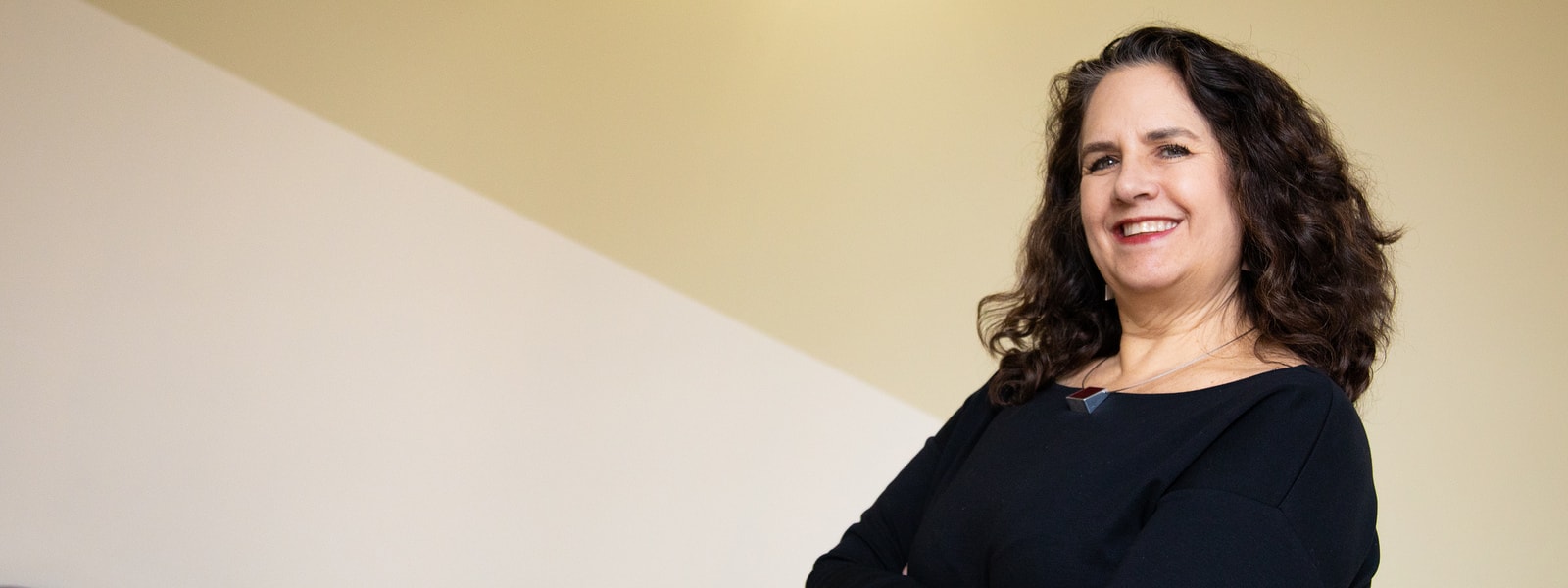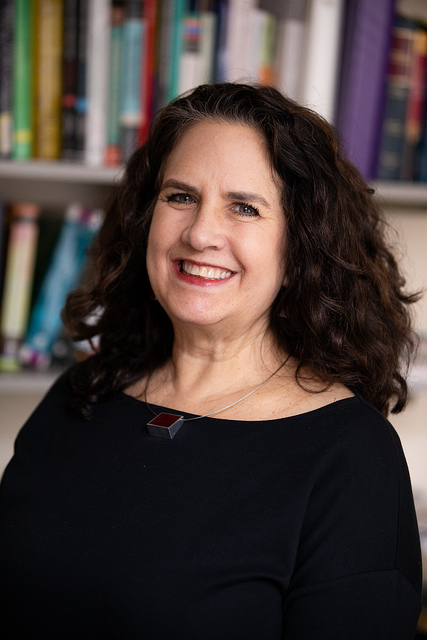
Digging Deep
A former geologist, Assistant Professor Ruth Bernstein is helping students find their footing in the nonprofit world.
A trained geologist, Assistant Professor Ruth Bernstein is used to knowing where she stands. Bernstein once made a living as a geologist for the Chevron Corporation. “I was headquartered in San Francisco but analyzed data for the North Sea and Mediterranean looking for spots that would be good for oil drilling,” she said.
Bernstein currently teaches courses in nonprofit studies here at UW Tacoma. She only worked in the oil industry for a few years but taught geology at different institutions across the country. It might be easier to say that Bernstein quit working to raise a family, but that wouldn’t be accurate. “I took up serious volunteerism and community engagement,” she said. “I founded and directed a Sunday school for my temple and served in that role for 10 years.”
In 2008, Bernstein found herself on uncertain ground. “My sons were grown and out of the house and I decided I needed a new career,” she said. Bernstein’s father sent her a New York Times article about mid-life career changes. “The piece talked about how philanthropy was now being offered as a degree,” she said. “By the time I’d finished reading I knew what I was going to do with my life.”
Bernstein grew up in Berkeley, California, the child of physicists. Her father worked at the Lawrence Berkeley National Laboratory housed at the University of California, Berkeley. “I was really lucky to have that kind of exposure,” said Bernstein. Her parents had a passion for physics but Bernstein favored earth sciences. “I loved being outside and exploring nature,” she said. Bernstein’s passion led her east, first to Rensselaer Polytechnic Institute in Troy, New York, where she earned a bachelor’s degree in geology, then to Brown University in Providence, Rhode Island, and a master’s in geology with a specialization in petrology.

Bernstein’s decision to work in the oil industry stemmed from the energy crises of the 1970s. “At that time I was really interested in alternative energies and I thought this would be a good place to start,” she said. Bernstein’s career trajectory slowly shifted. “My husband was a surgeon,” she said. “We moved a lot in the beginning for his residency and for his fellowship training.” Bernstein shifted her energies to the classroom as a teacher at institutions in Minneapolis, New Orleans and, finally, Bremerton.
Bernstein and her husband eventually settled in Silverdale. That was where they raised their kids and where Bernstein read that New York Times article. She applied to and was accepted into a philanthropy program at Indiana University. “It was a hybrid, which meant most of the courses were online, but I did have to spend a few weeks on campus during the summer,” said Bernstein. “Once I finished I realized I wasn’t done learning.” Bernstein went on to earn a Ph.D. in management from Case Western Reserve University in Cleveland, Ohio.
Following completion of her doctorate, Bernstein worked as an adjunct faculty member, a positon that ultimately brought her to UW Tacoma in 2013. “I was one of these typical adjuncts who traveled around and taught everywhere until I could find something more permanent,” she said. “The moment I started here I thought, ‘This is where I belong.’”
In the fall of 2016 Bernstein started in her new role as an assistant professor teaching courses about the world of nonprofits. “I teach with a focus on the United States and the Northwest nonprofit sectors,” she said. “I believe students need to know the theories, the philosophies and the history of the sector but they also have to have real-world experience.” Students in Bernstein’s classes work with local nonprofits in a number of ways including helping write grant proposals, participating in boards of directors’ meetings and, most recently, giving money to organizations as part of a quarter-long assignment.
Bernstein, it seems, is once again on solid ground. Now she’s focused on helping students find their footing. “Students here have so many questions, they’re just so interested,” she said. “The fact that they are non-traditional and diverse and fascinating and have had lives and have been in the military. All these great things that they bring are central to my being, central to what I believe.”



